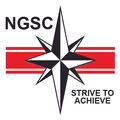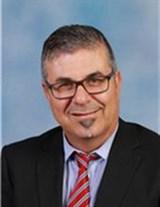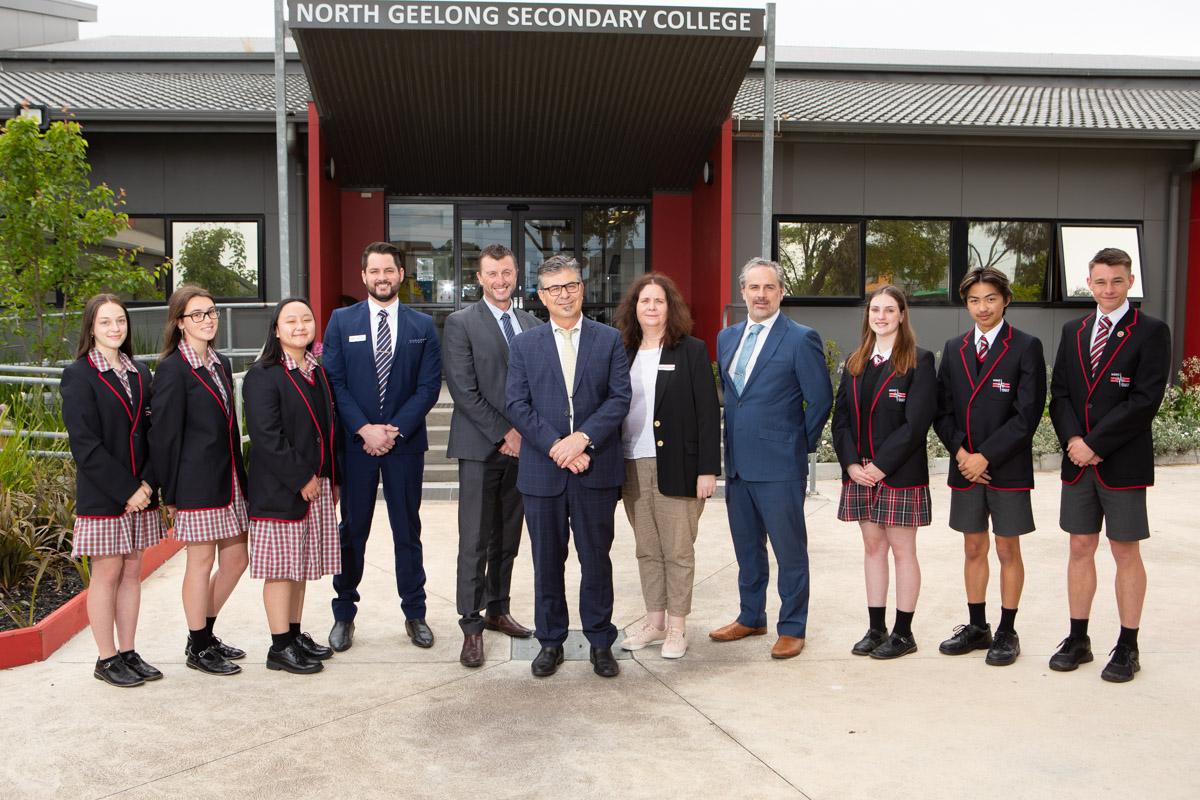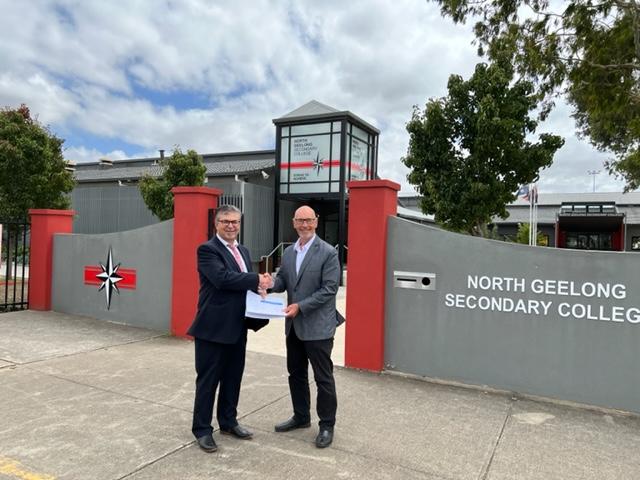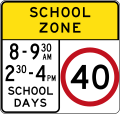PRINCIPAL'S REPORT
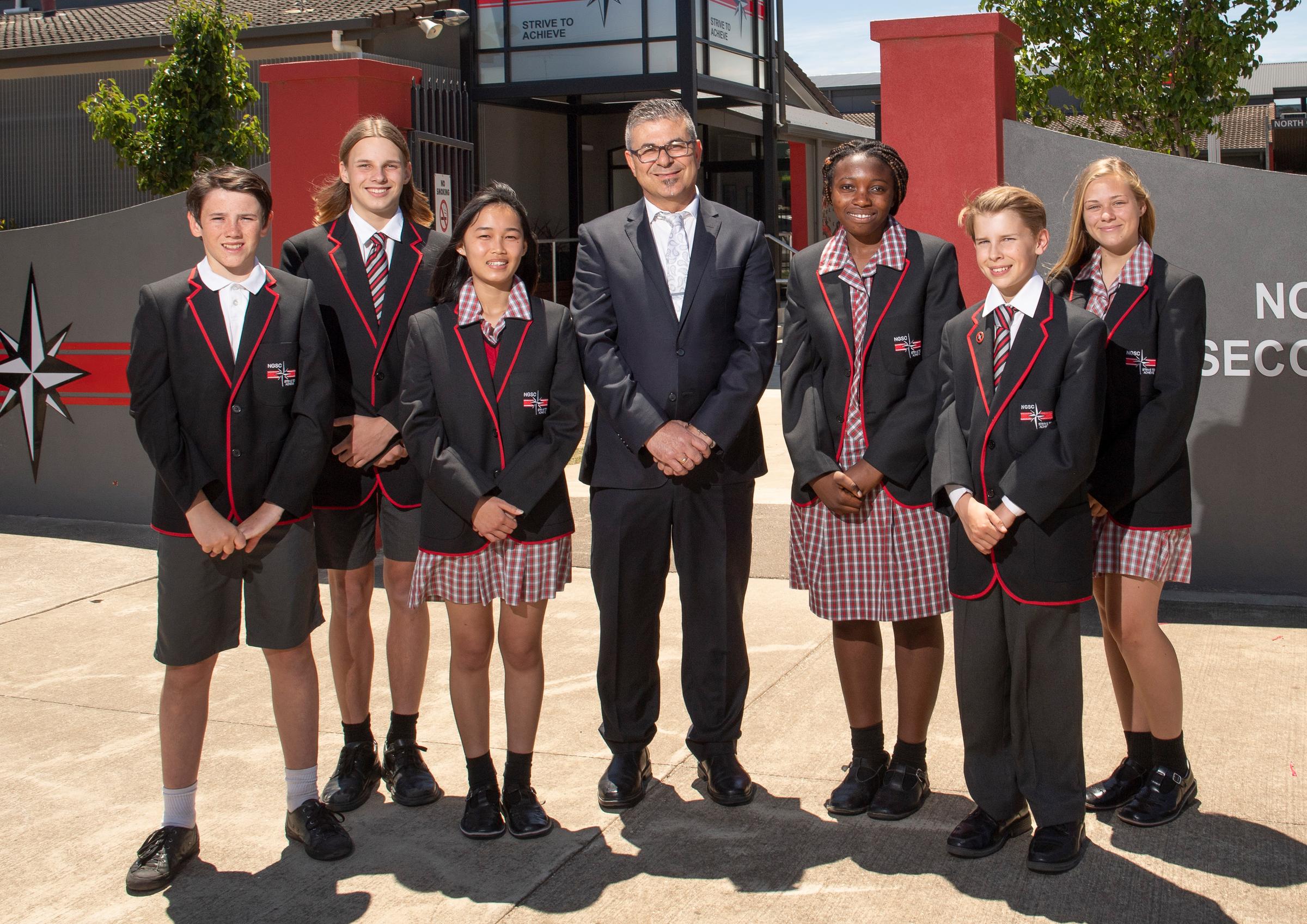
Nicholas Adamou
Principal
2022 Key Dates
| 10 March | Info/Open Night |
| 11 March | School Photo Day |
| 14 March | Labour Day Public Holiday |
| 16 March | Catch up Photos |
| 28 March | Athletics Day |
| 4 to 8 Apr | Year 10 Leadership Camp |
| 5 April | P/T Conferences 11:30 am to 6:30 pm |
Extension of COVIDSafe measures for Term 1
I take this opportunity to thank parents and students for the great job they have done in keeping our school as safe as possible by following important COVIDSafe measures such as mask wearing, physical distancing, ventilation, getting vaccinated and rapid antigen testing.
This has meant that our school has remained open and our students in class. This is a fantastic outcome and a testament to the hard work of parents, carers, students, and school staff.
Rapid antigen tests
To keep schools as safe as possible, the Victorian Government has extended the COVIDSafe measures introduced for the beginning of Term 1. This includes extending the availability of free rapid antigen tests (RAT) for screening until the end of term. It is anticipated an additional 24 million RATs will be provided to schools and early childhood settings to continue to support early detection and prevent infection, for use at home. The need for this program will continue to be monitored and may end earlier based on health advice. This is great news and will mean we’re able to continue identifying COVID-19 cases as early as possible, reducing the impact on our school and individuals.
The Department of Health modelling indicates that in the first two weeks of school returning, the program has already prevented more than 21,000 cases in schools alone. Their modelling indicates, assuming a 75 per cent compliance rate with screening of students, that by continuing RAT screening in schools for the full 10 weeks of Term 1, we will prevent:
61,000 COVID-19 infections in children aged 5 to 17
more than 150,000 COVID-19 infections in the overall community (on average 15,000 per week over 10 weeks, or more than 2,100 per day)
around 400 hospital admissions.
The school has received enough RATs and already distributed them to all students and staff. Twice-a-week testing continues to be strongly recommended for both students and staff.
Testing will continue to be conducted at home, and students and staff must report any positive result. There is no requirement to report a negative result.
Vaccination
Vaccination is another key component to protect students and staff in school settings.
Vaccinations for children aged 5 to 11 are open and third dose vaccinations for 16- to 17-year-olds are now available.
There are lots of convenient options to access vaccinations. These include state-wide vaccination hubs, your local GP or pharmacy.
You can book your appointment in a few different ways, including:
online: coronavirus.vic.gov.au/vaccine
by phone: 1800 675 398 (Coronavirus Hotline)
In person: talk to your local pharmacy, doctor, or attend a state-wide vaccination hub.
using the COVID-19 Vaccine Clinic Finder - COVID-19 Vaccine Clinic Finder | Australian Government Department of Health
Ventilation
Improving ventilation is one of the most effective measures to keep education settings safe. 51,000 air purifiers were delivered to schools by Term 1, 2022 to support COVIDSafe settings in schools.
Up to an additional 60,000 air purifiers will be rolled out to schools ahead of winter to supplement natural and mechanical ventilation during the cooler months.
The winter allocation will provide enough purifiers to cover all classrooms, in government schools and low-fee non-government schools based on current enrolments. This includes general purpose classrooms and other specialist classrooms such as art and science rooms.
Masks
Our students and staff are not required to wear masks; however, they are strongly encouraged to do so if they wish.
NGSC Leadership Team
Leadership is the art of motivating a group of people to act towards achieving common goals. In a school setting, this can mean leading teaching and learning and improved student outcomes ensuring that all students are safe and working towards their full potential.
This leadership definition captures the essentials of being able and prepared to inspire students to achieve their personal best. At NGSC we believe in effective leadership, which is based upon the latest educational research and DET initiatives. The school leadership team (School Captains and Principal Team) is the team that inspires and leads the wider school community. The leadership team members possess the right combination of personal attributes and leadership skills to ensure the school community is travelling on a successful pathway.
School Council Elections
This year we have had 4 parent vacancies, 1 community member vacancy and 2 DE&T employee member vacancies for a 2 year appointment (2022 & 2023). We also have had 1 student vacancy for a 2 year appointment (2022 & 2023).
At the close of the call for nominations in the Parent category for School Council there were 4 nominees for the 4 vacancies.
The following parents were therefore, elected for a two-year term:
- Mr Dirk Heitmann
- Ms Christine Wilson
- Ms Erin McGill
- Ms Jasmina Blagojevic
At the close of the call for nominations in the Community Member category there was one nominee for one vacancy.
The following community member was therefore, elected for a two-year term:
- Ms Amanda Bartlett
At the close of the call for nominations in the Department of Education & Training DE&T Category of School Council there were two nominees for two vacancies.
The following DET employees were therefore, elected for a two-year term:
- Ms Tonia Tigani
- Ms Elizabeth Fagan
At the close of the call for nominations in the Student Category of School Council there was 1 nominee for 1 vacancy. The following student, therefore, was elected for a two-year term:
- Ms Edie Graham
Congratulations to the parents, community and student members who have joined our School Council and thank you to all for showing interest in school governance. Working together makes a huge difference in improved student outcomes and in students’ lives.
On behalf of the school community, I sincerely thank the outgoing council members (parents, student & staff). Their contribution has been paramount to the life of our College Community.
2022 FRRR Back to School Program
The Geelong Community Foundation in conjunction with the Foundation for Rural and Regional Renewal (FRRR), the Glover Family Charitable Trust, William Angliss Charitable Fund and supporting partners, have once again delivered the 2022 Back To School Program. The Foundation contributes to and manages the program in the Geelong region supplying schools $50 Target gift cards to be used by students.
On Tuesday 22 February, I had the pleasure to meet Mr Barton van Laar (FRRR, Board member) who visited the school and delivered $10,000 worth of Back To School vouchers. The NGSC community, the students and their families very much appreciate this generous gift. Thank you FRRR!
Students and paid employment
The Australian Bureau of Statistics keeps track of the number of students engaged in paid employment. Their most recent report on the subject shows that the number of school age students involved in paid employment continues to rise. Another interesting trend that has emerged from this report is that a growing proportion of younger students are now working on a regular basis.
The main reason students work is to obtain spending money. Very few of the jobs that they undertake have any reference to likely future fulltime sustainable employment and very few supplement family income.
There are many advantages to students that can arise from paid employment. Exposure to the world of “real work” can be an eye-opener for young people. They often take far more notice of the expectations of employers regarding punctuality, appearance and communicating with others than they ever do of the same requests made by parents or their teachers. It can attribute to improving organisational, communication skills and the meaning of responsibility. It can also provide them with a degree of financial literacy and independence.
As Principal and a parent, I have long been an advocate of students contributing to the cost of sometimes expensive educational extra-curricular activities such as state, interstate and overseas camps or exchange visits.
There are, however, some disadvantages at times. The main concern with students undertaking paid employment is the impact that it can have on school performance. The additional income, at times can be negative, as it enables and encourages students to become engaged in a more sophisticated social lifestyle or in any way diverts them from their school-work and other social, family, or recreational activities which are essential to their development.
Like most things there is no clear-cut answer to the question. The most important thing is getting a balance between work, social-work, social, family, and recreational activities.
Casual work is most common, followed by holiday jobs, regular part-time work, and then rostered work. Obviously, any work on weeknights is a problem as it means students cannot complete set homework. Similarly work straight after school can prevent students meeting school commitments, which is not a good thing. Rostered work which often involves the student being called in to work at short notice can also cause problems.
Not surprisingly research has established a clear correlation between hours worked and impact on student performance. Working up to an average of 12 hours per week (providing that the work is not on a weeknight) had little measurable impact on academic performance of high school students. Working more than 16 hours per week, however, was directly correlated with deterioration on academic progress.
Overall, holiday jobs are no problem. Part-time or casual work limited to 12 hours per week and done at a time which does not interfere with homework, school commitments, recreation or sleep is seldom a cause of concern. Students working 16 hours or more a week, however, inevitably suffer a deterioration in their academic performance. Students who work at times which interfere with their other needs and commitments also suffer adverse effects to their progress.
The school supports students that are in paid employment, provided that the work they do and the hours they work per week do not interfere with student academic performance. I encourage parents to communicate with the school if they have any concerns about their children having paid employment.
Homework
At the beginning of every academic year a great deal is written in various publications on the topic of homework. Some of the education opinion-piece writers argue strongly that homework is an ineffective means of improving academic performance. Some go as far as to suggest that homework has a negative impact because it turns other children off school and causes tension between parents and their children. I agree with some of the criticisms of homework: excessive amounts of homework are counterproductive; it is not a case of more is better; homework without a clear purpose, e.g. ‘busy’ work, is of little value.
However, there is ample evidence from research and experience indicating that homework can increase learning and achievement. That is why it remains an important part and an expectation of the learning process for all North Geelong Secondary College students. Please see school policy on “homework” on the school’s website.
There are many benefits that flow from completing regular, relevant homework. Homework helps students develop sound study skills and habits. By undertaking regular homework, students develop self-discipline and time-management skills, and begin to take responsibility for their own learning.
Homework supplements and reinforces work done in class. Revising work covered in class during the day greatly aids understanding and memory; the Ebbinghaus curve (The forgetting curve illustrates the decline of memory retention in time. A related concept is the strength of memory that refers to the durability that memory traces in the brain. The stronger the memory, the longer period of time that a person is able to recall it. A typical graph of the forgetting curve shows that humans tend to halve their memory of newly learned knowledge in a matter of days or weeks unless they consciously review the learned material) underlines the role that ‘re-visiting’ material plays in retention and recall of information. Homework of this type usually consists of written tasks, reading, drill work and memorisation.
Homework can also be used to extend students’ skills and understanding in areas that cannot be covered in limited class time. Extension activities usually take the form of longer projects which are an expansion of work covered in class, or problem-solving activities which may take several days or weeks to complete.
At NGSC students always have homework irrespective of their Year Level. Students understand that homework is not simply the work set by their subject teacher; it is also work that the student needs to do to ensure that the day’s lessons are absorbed, previous work revised, preparation is made for new units of work, and assignments are completed by the due date.
The role of the parent in homework is to support and help students. Students need to be provided with the environment and resources necessary to undertake homework and to establish a regular routine for schoolwork done at home. However, parents must never forget that homework is set for the student, and that teachers need to see what students can do on their own. Parents should also be aware if their child is spending too long on homework tasks. Students should be encouraged to take regular breaks, so they feel refreshed and ensure their study time is affective. Learning does not only take place in the classroom during scheduled lesson times. Homework plays an important part in learning also. Please call the school and talk to your child’s Home Group Teacher, Coordinator, Sub-School Leader or a Principal Class Officer, if there are any issues with your child’s homework.
Privacy Reminder to all Parents/Carers
North Geelong Secondary College collects, uses, discloses and stores student and parent personal information for standard school functions or where permitted by law, as stated in the Schools’ Privacy Policy,
Please take time to remind yourself of the school’s collection statement, found on our website.
For more information about privacy, see: Schools’ Privacy Policy – information for parents. This information is also available in a number of community languages.
Student accident insurance, ambulance cover arrangements and private property brought to schools
Parents and carers are reminded that the Department does not provide personal accident insurance or ambulance cover for students.
Parents and guardians of students, who do not have student accident insurance/ambulance cover, are responsible for paying the cost of medical treatment for injured students, including the cost of ambulance attendance/transport and any other transport costs.
In some circumstances, medical or other expenses will be paid by the Department where it is assessed that it is likely, in all the circumstances, that the Department is liable for negligent (careless) acts or omissions of its staff/volunteers.
Student accident insurance/ambulance cover policies are available from some commercial insurers and can be obtained by school councils on a whole-of-school basis, or by parents/guardians for individual students.
School Zone Speed Limits
With the new school year started, it is an opportune time for school communities to be reminded of the importance of road safety around schools.
School Speed Zones are enforced from the commencement of the school year and parents/carers are reminded to adhere to all VicRoads School Speed Zones rules.
Also, parents/guardians are reminded to take care and obey these parking signs and observe the Road Rules when picking up or dropping off students around schools. The City of Greater Geelong Parking and Information Officers monitor all supervised school crossings on a regular roster and issue infringements to drivers who stop in unsafe areas, such as “No Stopping” zones, within 20 metres of a school crossing, parallel to a yellow edge line, or if double parked, even for a moment to drop off or collect a student.
Queuing to enter a pickup/drop off zone can often lead to traffic congestion with vehicles being stationary in prohibited areas. Should the pickup/drop off zone be occupied with vehicles, to avoid the possibility of receiving an infringement it is advised to drive around the block and return when legal parking is available.
Statistics show that illegal parking around schools is greatly reduced due to an Officer’s presence and Council prefers to achieve these results though education and awareness.
Designated school speed zones: Specified times (8:00 – 9:30 am and 2:30 – 4:00 pm).
Further information in regard to VicRoads speed limits around schools can be found at: VicRoads School Speed Zones
Also, please note that the school car park is out of bounds for all parents/guardians. The car park is only for staff. It is imperative that parents DO NOT enter the carpark during pick up/drop off as they are placing students and staff at grave risk.
I wish to thank all parents/guardians who always adhere to all traffic rules re: school zones and the school carpark rules. The safety of all children, staff and parents is paramount.
